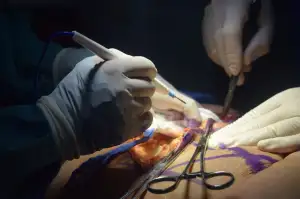Unlocking the Power of Healing: Understanding the Process of Recovery and Restoration

- Understanding the Body's Natural Healing Mechanisms
- Importance of Proper Nutrition and Hydration in Healing
- The Role of Physical Activity and Exercise in Recovery
- Mental Health and Emotional Well-being in the Healing Journey
- Seeking Professional Help and Support for Effective Healing
- Patience and Persistence: Key Factors in the Healing Process
Healing is a complex and intricate process that our bodies undergo to repair and restore themselves after injury, illness, or trauma. It involves a series of physiological responses and mechanisms that work together to promote recovery and return to optimal health. Understanding the healing process is crucial in facilitating the body's natural ability to heal itself effectively. From physical wounds to emotional scars, the journey of healing encompasses various aspects of our well-being, highlighting the interconnectedness of mind, body, and spirit in achieving overall wellness. Let's delve deeper into the fascinating world of healing and explore the key factors that contribute to this transformative journey towards restoration and renewal.
Understanding the Body's Natural Healing Mechanisms
Our bodies possess remarkable natural healing mechanisms that work tirelessly to repair and restore damaged tissues. When an injury occurs, the body initiates a complex process involving inflammation, tissue regeneration, and remodeling. Blood vessels dilate to increase blood flow to the affected area, delivering essential nutrients and immune cells. Platelets form clots to stop bleeding, while white blood cells fight off infection. Fibroblasts produce collagen to rebuild tissue strength. Understanding and supporting these innate processes are crucial for optimal healing outcomes.
Importance of Proper Nutrition and Hydration in Healing
Proper nutrition and hydration play a crucial role in the healing process. Nutrient-rich foods provide essential vitamins, minerals, and antioxidants that support the immune system and promote tissue repair. Adequate hydration helps maintain optimal bodily functions, including circulation and detoxification. Protein is vital for rebuilding tissues, while carbohydrates provide energy for cellular repair. Including a variety of fruits, vegetables, lean proteins, whole grains, and healthy fats in your diet can enhance healing and recovery speed.
The Role of Physical Activity and Exercise in Recovery
Physical activity and exercise play a crucial role in the recovery process. Regular exercise can help improve circulation, strengthen muscles, and boost overall physical health. It can also aid in reducing inflammation and promoting faster healing of injuries. Additionally, exercise releases endorphins, which are known as the body's natural painkillers and mood elevators, helping to alleviate stress and improve mental well-being during the healing journey. Incorporating a balanced exercise routine tailored to individual needs can significantly enhance the body's ability to recover and restore itself.
Mental Health and Emotional Well-being in the Healing Journey
Mental health and emotional well-being play a crucial role in the healing journey. Studies have shown that stress, anxiety, and depression can negatively impact the body's ability to heal. It is essential to address any underlying mental health issues through therapy, mindfulness practices, or support groups. Positive emotions and a strong support system have been linked to faster recovery rates and improved overall well-being during the healing process. Prioritizing mental health can significantly enhance the body's natural healing mechanisms and promote a quicker and more effective recovery.
Seeking Professional Help and Support for Effective Healing
Seeking professional help and support is crucial for effective healing. Healthcare providers, such as doctors, nurses, and therapists, play a vital role in guiding individuals through their recovery journey. They can offer medical expertise, personalized treatment plans, and emotional support. Additionally, support groups and counselors provide a safe space for individuals to share their experiences and receive encouragement from others facing similar challenges. Collaborating with professionals ensures that individuals receive comprehensive care tailored to their specific needs, enhancing the effectiveness of the healing process.
Patience and Persistence: Key Factors in the Healing Process
Patience and persistence are essential elements in the healing process. Recovery takes time, and it's crucial to allow the body to heal at its own pace. Rushing the process can lead to setbacks or complications. It's important to stay committed to the treatment plan and trust that progress will come with time. Remember that healing is not always linear, and there may be ups and downs along the way. By staying patient and persistent, you give your body the best chance to fully recover and restore itself.
In conclusion, embracing the journey of healing and recovery is a powerful and transformative experience. By understanding the body's natural healing mechanisms, prioritizing proper nutrition and hydration, engaging in physical activity, and nurturing mental health, individuals can support their bodies in the recovery process. Seeking professional help and support, along with practicing patience and persistence, are crucial components of effective healing. Remember that healing is a gradual process that requires time and dedication, but by staying committed to self-care and well-being, one can truly unlock the power of restoration and embark on a path towards holistic wellness.
Published: 01. 04. 2024
Category: Health



